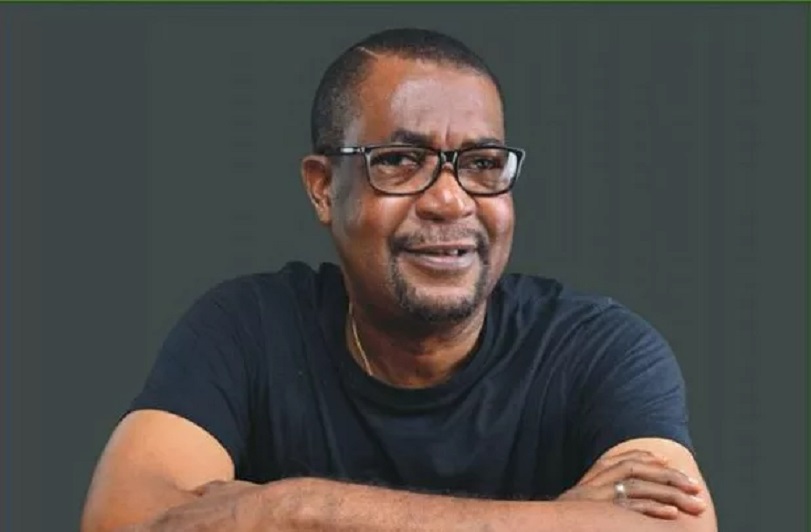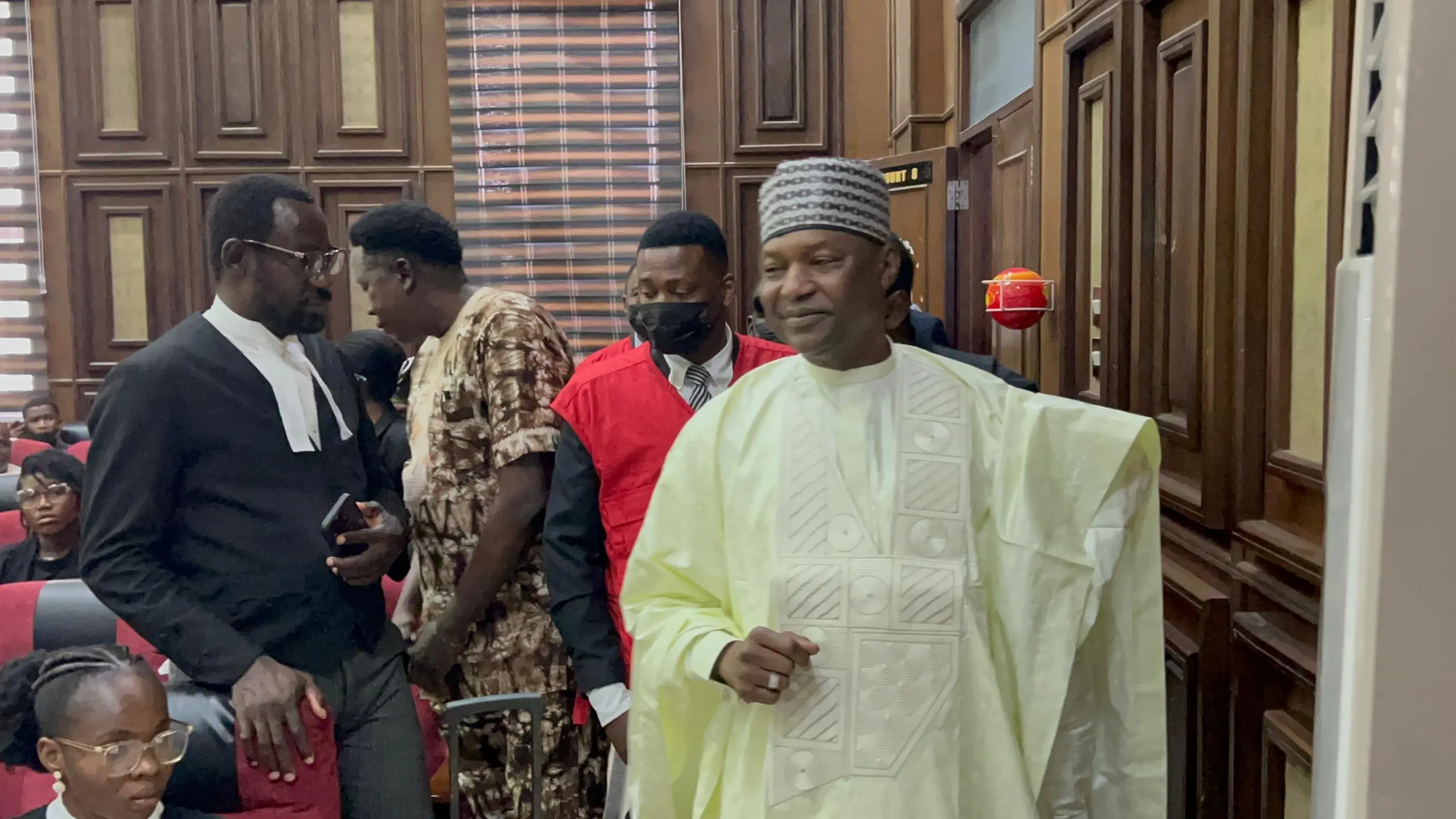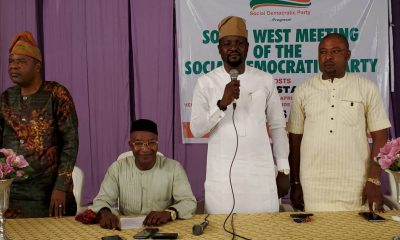General
Court Dismisses Olu Agunloye’s EFCC Abuse Suit, Orders N500,000 Payment

By Adedapo Adesanya
The Federal High Court in Abuja has dismissed a suit filed by a former Minister of Power and Steel, Mr Olu Agunloye, alleging abuse of his fundamental rights and seeking to be shielded from investigation and prosecution by the Economic and Financial Crimes Commission (EFCC).
In a statement following the court’s judgement on Monday, the anti-graft agency said the presiding judge, Mr Obiora Egwuatu, dismissed the suit for lacking in merit and awarded a cost of N500,000 against Mr Agunloye in favour of the EFCC.
Dismissing the suit, the judge held that Mr Agunloye’s fundamental human right was not “abridged” as he claimed, noting that the investigation conducted by the EFCC was in line with the Nigerian constitution and provisions of the EFCC Act, 2004.
The judge also commended the EFCC for the civility with which it treated Mr Agunloye and advised him to stop evading criminal investigation of the Commission as there was no fundamental right against criminal investigation.
The EFCC is prosecuting Agunloye on seven-count charges, bordering on fraudulent award of contract and official corruption to the tune of $ 6 billion.
Mr Agunloye, 75, had, in the suit, sought an order of court against his invitation, interrogation and prosecution by the EFCC in connection with the alleged award of the controversial $6 billion hydropower contract in 2003 to Sunrise Power and Transmission Company (SPTC) Limited
He allegedly awarded the contract in his capacity as the Minister of Power and Steel during the administration of then-President Olusegun Obasanjo without the approval of the Federal Executive Council (FEC).
The charges also include receiving the sum of N3.6 million through his Guaranty Trust Bank account no.0022530926 from Sunrise Power and Transmission Company Limited (SPTCL) in 2019.
Suing the EFCC, he alleged that his invitation and interrogation were “arbitrary, malicious, unconstitutional, unlawful and constitute a gross violation” of his right to “dignity of the human person, personal liberty and freedom of movement.”
He prayed the court “to restrain the EFCC from arresting, detaining, harassing, further inviting, interrogating, or inviting in order to arrest and or detain him with respect to the award of contract to Sunrise Power and Transmission Company Limited.”
In response, the EFCC argued that it was statutorily empowered by law to cause investigations to be conducted “as to whether any person, corporate body or organisation has committed any economic and financial crime.”
The EFCC counsel further argued that the commission was simply investigating the role the applicant played in the award of the Mambila Project to Sunrise Power and Transmission Company.
He also said Mr Agunloye curiously jumped the administrative bail granted to him by EFCC on self-recognition, which he backed with a voluntary undertaking to provide a surety on or before 19 May 2023.
“The applicant refused to return to the office of the respondent on 19 May 2023, as undertaken by him, instead he vanished and later served the respondent with his application for enforcement of fundamental rights on 22 June 2023 pending before this honourable court thereby seeking to be shielded from a criminal investigation by this honourable court.”
The EFCC is prosecuting Mr Agunloye, who served as a minister in the administration of former President Olusegun Obasanjo, on charges of forgery, disobedience of presidential order and corruption stemming from the Mambilla power contract.
The EFCC accused the former minister of awarding a contract for the construction of a 3,960MW Mambilla Hydroelectric Power Station on the build, operate and transfer basis to Sunrise Power and Transmission Company Limited without any budgetary provision, approval or cash backing.
He was arraigned on Wednesday, 10 January 2024 before a judge of the Federal Capital Territory High Court in Apo, Abuja, Justice J.O. Onwuegbuzie.
The prosecution also alleged that it traced some suspicious payments made by Sunrise Power and Transmission Company Limited to the former minister’s accounts.
The defendant, however, pleaded not guilty to the charges preferred against him.
General
NISO Attributes Electricity Woes to Inadequate Gas Supply

By Adedapo Adesanya
The Nigerian Independent System Operator (NISO) has attributed the poor power supply facing a considerable number of Nigerians to inadequate gas supply to thermal power plants.
Business Post reports that epileptic power supply has plagued consumers in Lagos, Oyo, Abuja, and Osun, among others, this month, leading to worries. Also, some businesses have recorded losses due to the epileptic power supply in their areas.
In a statement posted on its X handle, NISO disclosed that average available generation on the national grid currently stands at about 4,300 megawatts (MW), with the low output primarily attributed to gas supply constraints.
The system operator noted that thermal power plants, which account for the dominant share of Nigeria’s electricity generation mix, require an estimated 1,629.75 million standard cubic feet (MMSCF) of gas per day to operate at optimal capacity. However, as of February 23, 2026, actual gas supply to the plants was approximately 692.00 MMSCF per day.
The available supply represents less than 43 per cent of the daily gas requirement, resulting in constrained generation output and reduced electricity allocation to Distribution Companies (DisCos).
NISO, which independently manages the nation’s electricity grid, explained that any disruption or limitation in gas supply directly affects available generation capacity and overall grid output, given the heavy reliance on thermal plants.
It added that when total system generation drops significantly, the operator is compelled to implement load shedding across the network while dispatching available energy in line with allocation percentages approved under the Multi-Year Tariff Order (MYTO) framework of the Nigerian Electricity Regulatory Commission (NERC), to maintain grid stability and prevent system disturbances.
While expressing regret over the inconvenience to electricity consumers and market participants, NISO said it is working closely with relevant stakeholders to restore full energy allocation once gas supply improves and generation capacity returns to normal levels.
General
EFCC Re-Arraigns ex-AGF Malami, Wife, Son Over Alleged Money Laundering

By Adedapo Adesanya
The Economic and Financial Crimes Commission (EFCC) has re-arraigned former Attorney-General of the Federation (AGF), Mr Abubakar Malami (SAN), his wife, Mrs Asabe Bashir, and son, Mr Abdulaziz Malami, on money laundering charges.
They were brought before Justice Joyce Abdulmalik of the Federal High Court in Abuja, following the re-assignment of the case to the new trial judge.
Upon resumed hearing, EFCC’s lawyer, Mr Jibrin Okutepa (SAN), informed the court that the matter was scheduled for defendants’ re-arraignment.
“The matter is coming before your lordship this morning for the very first time. I will be applying for the plea of the defendants to be taken,” he said.
Mr Okutepa equally applied that the sums listed in Counts 11 and 12 be corrected to read N325 million instead of N325 billion for Count 11, and N120 million instead of N120 billion for Count 12.
When it was not opposed by the defence lawyer, Mr Joseph Daudu (SAN), Justice Abdulmalik granted the oral application by Mr Okutepa.
The defendants, however, pleaded not guilty to the 16 counts preferred against them by the anti-graft agency bordering on money laundering.
Justice Obiora Egwuatu had, on February 12, withdrawn from the case shortly after the civil case filed by the EFCC was brought to him.
The case was formerly before Justice Emeka Nwite, who sat as a vacation judge during the Christmas/New Year break.
After the vacation period, the CJ reassigned the cases to Justice Egwuatu, who had now recused himself, before it was reassigned to Justice Abdulmalik.
The former AGF, his wife, and son were earlier arraigned before Justice Nwite on December 30, 2025.
While Malami and his son were remanded at Kuje Correctional Centre, Asabe was remanded at Suleja Correctional Centre before they were admitted to N500 million bail each, on January 7, with two sureties each in the like sum.
General
INEC Shifts 2027 Presidential, N’Assembly Elections to January 16

By Adedapo Adesanya
Nigeria will hold next year’s presidential and National Assembly elections a month earlier than planned, after the Independent National Electoral Commission (INEC) revised the polling schedule.
The elections will be held on January 16, instead of the previously announced date of February 20, INEC said in an X post, signed by Mr Mohammed Kudu Haruna, National Commissioner and Chairman, Information and Voter Education Committee.
There were also changes to the Governorship and State Houses of Assembly elections initially fixed for Saturday, March 6 2027, in line with the Electoral Act, 2022, have now been moved to Saturday, February 6, 2027.
The electoral commission said the changes were caused by the enactment of the Electoral Act, 2026 and the repeal of the Electoral Act, 2022, which introduced adjustments to statutory timelines governing pre-election and electoral activities.
“The Commission reviewed and realigned the schedule to ensure compliance with the new legal framework,” it said.
INEC said party primaries (including resolution of disputes) will commence on April 23, 2026 and end on May 30, 2026, after which Presidential and National Assembly campaigns will begin on August 19, 2026, while Governorship and State Houses of Assembly campaigns will begin on September 9, 2026.
It noted that campaigns will end 24 hours before Election Day, and political parties have been advised to strictly adhere to the timelines.
INEC also stated it will enforce compliance with the law.
The electoral body also rescheduled the Osun Governorship election which was earlier scheduled for Saturday, August 8 2026, by a week to Saturday, August 15, 2026.
INEC noted that some activities regarding the Ekiti and Osun governorship elections have already been conducted, and the remaining activities will be implemented in accordance with the Electoral Act, 2026.
Speaking at a news briefing in Abuja two weeks ago, the chairman of INEC, Mr Joash Amupitan, expressed the readiness of the commission to conduct the polls next year.
The timetable issued by the organisation for the polls at the time came when the federal parliament had yet to transmit the amended electoral bill to President Bola Tinubu for assent.
Later that week, the Senate passed the electoral bill, reducing the notice of elections from 360 days to 180 days, while the transmission of results was mandated with a proviso.
-

 Feature/OPED6 years ago
Feature/OPED6 years agoDavos was Different this year
-
Travel/Tourism10 years ago
Lagos Seals Western Lodge Hotel In Ikorodu
-

 Showbiz3 years ago
Showbiz3 years agoEstranged Lover Releases Videos of Empress Njamah Bathing
-

 Banking8 years ago
Banking8 years agoSort Codes of GTBank Branches in Nigeria
-

 Economy3 years ago
Economy3 years agoSubsidy Removal: CNG at N130 Per Litre Cheaper Than Petrol—IPMAN
-

 Banking3 years ago
Banking3 years agoSort Codes of UBA Branches in Nigeria
-

 Banking3 years ago
Banking3 years agoFirst Bank Announces Planned Downtime
-

 Sports3 years ago
Sports3 years agoHighest Paid Nigerian Footballer – How Much Do Nigerian Footballers Earn














